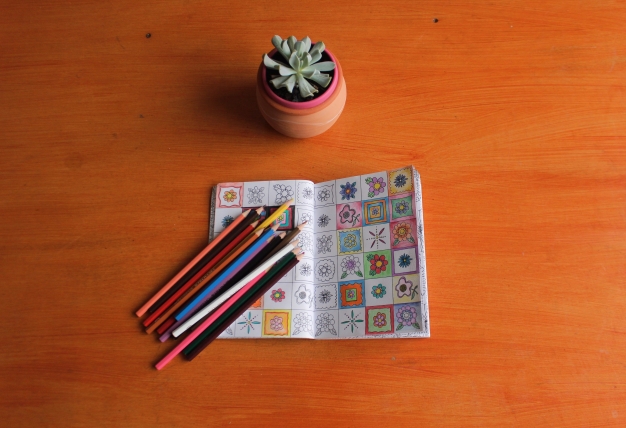Mindfulness*, as Dan Harris puts it, is the ability to know what’s happening in your head at any given moment without getting carried away by it.
My mind is in a bad space, for a number of reasons:
- the ever-looming shadow of exams
- the rising temperatures
- the clothes, ridden, dishevelled distaster that is my room
- the fucking underestimated strength of my depression
If there ever was a perfect time to return to the practice of mindfulness, it is now.
There are many ways to practise being mindful. You can be mindful while washing the dishes, having a meal, or preparing yourself just before a test. The purpose is to be aware of what you are feeling and thinking in the present moment, which helps to avoid becoming overwhelmed by what’s going on in your head. It doesn’t come naturally.
Mindfulness is not some kooky hippie nonsense that only works for people who do yoga (although yoga is a wonderful way to practise it). Anyone can practise mindfulness. Taking a little time out of each day can work wonders on the mind. During first semester this year, I practised it through daily meditation. Using the guidance of Headspace (the free version, of course), I meditated each evening for ten minutes, and upon opening my eyes at the end, I’d feel a calm wash over me. Things were clearer— less cluttered and daunting.
Because I am a student and I blog about student-y things, I cannot emphasise this enough: if you’re a student, you’ve gotta try out this mindfulness thing. For the sake of your health, your sleep, and your troubles… just try it.
 Becoming aware of the present changes the way you approach things, and how you react to things. My psychotherapist uses this analogy: your emotions are a wide river, continually running, and instead of allowing the current to overpower you and pull you down into its depths, you simply stand strong and let the water stream past you, feeling its presence without succumbing to it.
Becoming aware of the present changes the way you approach things, and how you react to things. My psychotherapist uses this analogy: your emotions are a wide river, continually running, and instead of allowing the current to overpower you and pull you down into its depths, you simply stand strong and let the water stream past you, feeling its presence without succumbing to it.
Don’t treat it like a chore; treat it like an everyday activity, like brushing your teeth. It’s not going to end all your problems, but here are just some of the ways in which it can benefit your life:
- improved focus
- reduced stress
- becoming more aware of your thoughts
- better sleep
- improved ability to act under pressure
Psychotherapists have recently found the practise of mindfulness to benefit their patients struggling with mental health problems, such as depression, anxiety, obsessive-compulsive disorder, eating disorders, and substance abuse.
These days favourite way to be more present is to use Emma Farrarons‘ mindfulness colouring book. Not only do I get to be a child and pretend that it’s for my adult stresses, but it is calming and surprisingly satisfying, picking colours and filling in lines and shapes and patterns. I highly recommend it.


For us students, every week has become Hell Week.
Go do some meditation.
*De-stress game: Inhale and exhale deeply every time you see the words “mindful” or “mindfulness” in this article…
[Header image and photos in post: Guinevere Shapiro]